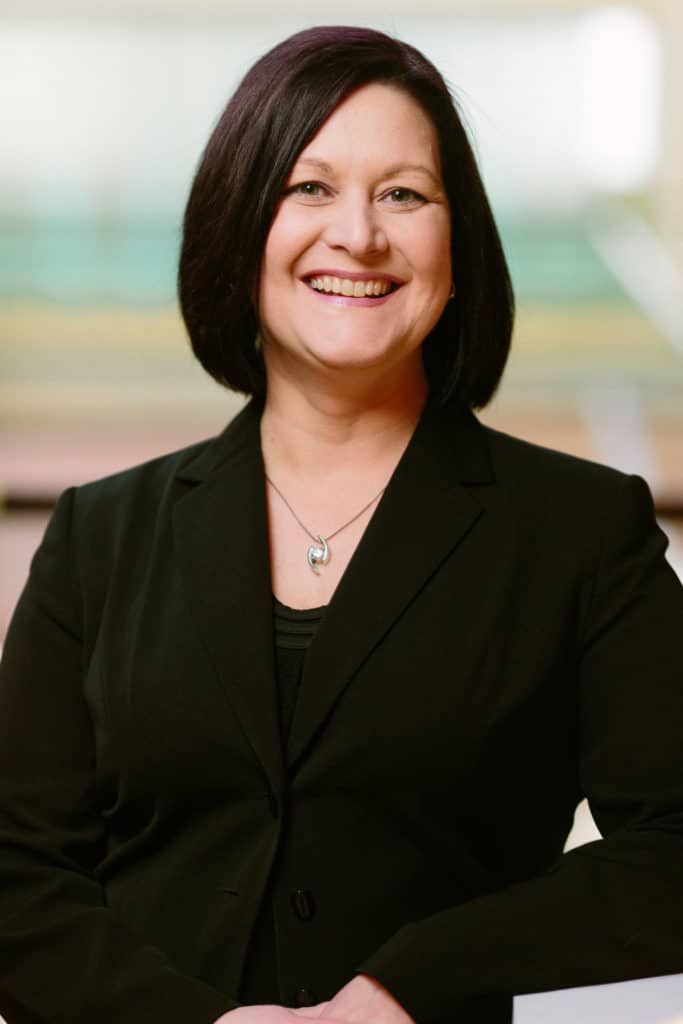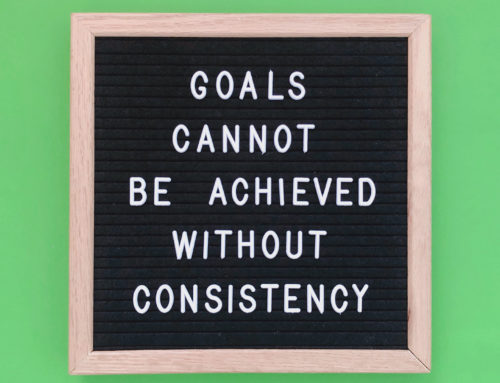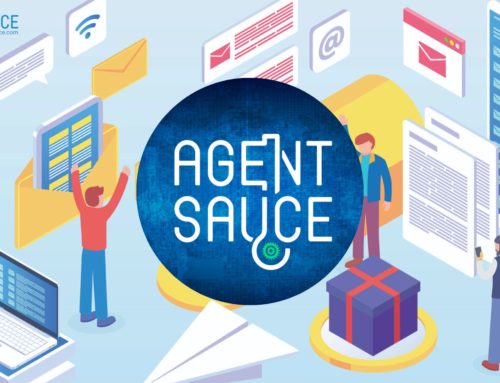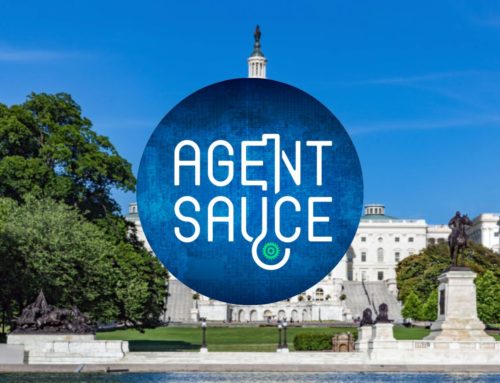In this episode we talk to Elizabeth Janes about how lenders can help future buyers with credit issues. We thought this would be a great topic for real estate agents because we are sure that, from time to time, they run into somebody who has had some trouble with their credit.

Elizabeth Janes | Mortgage Consultant
NMLS #198733
CrossCountry Mortgage, LLC
710 Executive Park Drive, Suite 10
Greenwood, IN 46143
C: 317.372.4404
O: 317.284.6859
F: 317.207.7219
Apply Now | crosscountrymortgage.com/Elizabeth-Janes
Podcast Takeaways
- You don’t necessarily need 20% down to buy a home.
- Divorces and Bankruptcies don’t disqualify.
- Talk to a mortgage expert, they might be able to help where traditional banks can’t.
Helping Buyers With Credit Issues Podcast Transcript
Adam Small: Hello and welcome to the Real Estate Marketing Minute. I’m your host, Adam Small with Agent Sauce. Today, we are at Amerifirst Mortgage with Elizabeth Janes, and she is a mortgage consultant. Hi, Elizabeth. How are you?
Elizabeth Janes: I’m great. Thank you for having me.
Adam Small: Great. Yeah, thanks for being on the show. We also have Kimberly Small with us.
Kimberly Small: Hey, how are you?
Adam Small: Doing well. Thank you. So today, we’re going to be talking to Elizabeth about how lenders can help future buyers with credit issues, and we thought this would be a great topic for realtors because I’m sure that from time to time, they run into somebody who has maybe little trouble in their past with their credit. So, thank you so much for joining us today, Elizabeth. We do appreciate it. So why don’t we start off with you telling us a little bit about yourself?
Elizabeth Janes: Okay. I am married, with two children. Kind of started over in life a little bit. I have a 22-year-old son and a four-year-old daughter. I’ve been in the real estate market now for a little over 20 years. My first husband and I purchased a brand new home in 1994, and I really enjoyed the process so much that I said, “I can do this.”
Adam Small: You liked the process of buying a home.
Elizabeth Janes: Actually did. It was exciting to me, looking at the different floor plans and picking out my options, and it was exciting. So, I said, “You know what? I think I can do this.” I went to work for that builder. It was a local builder. I worked for them for a little over four years and then went to work for another local builder for about a year more after that. Then when I was done with the new home construction, I got a little bit too competitive for my nature. I’m not a pushy sales person, so I got a little bit, kind of cutthroat, and we were moving into the early 2000s at this point, and I thought, “You know what? I think I want to do something else.”
I actually went to work for the lender who did all of my mortgages for my clients, did everything except originate loans with them, so I did some processing, some underwriting. I handled the appraisals, the inspections, the escrow department. I did closing packages. I handled post-closing and compliance. I handled all of the paperwork to send off to HOD for insurance. So, got a really great knowledge of the back end of things and guidelines and what paperwork is required for certain things. I did that for about six years and then in 2009, decided that it was time to become an originator.
So, I got my loan originator’s license in 2009, so I’m wrapping up my ninth year as a loan originator.
Adam Small: Wow, that’s a wealth of experience to draw on. When it comes to a mortgage, there are a lot of myths out there. I can remember needing 20% down or else you have to pay way more in insurance, and you’ll never get a loan if you don’t have it. That sort of thing. What are some of the myths to getting a mortgage that that you run into commonly?
Elizabeth Janes: I hear a lot that people feel like they need to have 20% down or that’s the goal to have 20% down. I don’t know about you guys, but it takes a long time to accumulate that much in your savings.
Adam Small: Yeah, yeah. Well, I mean, three or $400,000 home, you’re looking at 60 to 80 thousand dollars, right?
Elizabeth Janes: Right. I mean, even a modest starter home in the low hundred thousands, you think about that-
Adam Small: 20 or 30 thousand, right?
Elizabeth Janes: Right. I mean, people just don’t have the ability to accumulate that kind of savings. So, it would really stifle the housing industry if that really were the case. While it’s true, to have 20% down, you do avoid having to have mortgage insurance. So, for your people who have great credit, they probably also have the ability to save 20%, so probably not a big deal.
Adam Small: It helps, but it’s not necessarily required. Right.
Elizabeth Janes: Right, so you have your programs like FHA, which only requires a 3.5% down payment, all of which can be a gift from a family member. You can borrow from a 401k. You have your VA loans, so you’re qualified veterans. That is 100% financing, no down payment. There’s no mortgage insurance on a VA loan.
Adam Small: Right, because the VA Is actually the insurance, right?
Elizabeth Janes: Right. You do pay a funding fee with the VA loan. It is financed. Typically, the veteran will finance that into their total loan amount. But if it’s their first-time use, it’s not very expensive. You can even be exempt from that funding fee for certain service-connected issues where they’ve been discharged for a disability or an injury, and I believe a non-remarried widow of a veteran can also … They can be eligible for a VA loan, and I believe they are also exempt from that funding fee.
Adam Small: That’s interesting.
Elizabeth Janes: So, I’ve only run into that one time in my career with a non-remarried widow of a veteran.
Adam Small: Well, that’s good, right?
Elizabeth Janes: Right.
Adam Small: Let’s say that’s good, right?
Elizabeth Janes: It was good for her. Also, USDA loans don’t require a down payment. Those are location driven, do have some income limits, and very, very affordable mortgage insurance included in that. So, also conventional loans, you have options for 3% down, 5% down, whatever combination of down payment that you want on that. The good thing about conventional loans with less than a 20% down payment is you have options with your mortgage insurance.
So, it’s risk-based pricing is what they call it, and they look at your credit score. They look at your loan amount. They look at your debt-to-income ratio, and they base the price of your mortgage insurance on those items, and you have the option to do a monthly premium or a one-time premium at closing.
Adam Small: Oh, that’s interesting. So then if you did the lump sum, would they roll that into the mortgage itself or no?
Elizabeth Janes: They can either pay it as part of their total funds that they bring to closing and never worry about it again. There’s a way to build it into the interest rate to where it’s more like a lender paid MI, and you’ll see that … I see advertised a lot with banks where they have 3% down with no PMI. And generally, what they’ve done is they’ve built that into their interest rate where the lender is actually paying the mortgage insurance. It really is there. It’s just not visible to the buyer.
Adam Small: Right, right, right. What other kind of myths are there that you run into?
Elizabeth Janes: A lot of people think that you can’t get a mortgage while you’re going through a divorce or while you’re in a chapter 13 bankruptcy. There are ways to do both of those things.
Adam Small: It can be worked around?
Elizabeth Janes: Yes, yes.
Adam Small: Okay, cool. So since you mentioned bankruptcy, that and foreclosure are probably two pretty serious credit issues. What are some other things will have a big impact on your ability to get a mortgage?
Elizabeth Janes: I see a lot of folks that have problems with student loans.
Adam Small: Really?
Elizabeth Janes: Whether they have gone into default or maybe they’ve had a year’s worth of missed payments. Somebody graduates from college, and they move obviously. So, maybe they’re not looking for those notifications that their student loans are now in repayment.
Adam Small: Time for you to pay up, buddy.
Elizabeth Janes: Yes, yes, I see that a lot, and I hear people say, “Well, I didn’t know. I didn’t know,” and I’m like, “You kind of did.”
Adam Small: You knew it was coming at some point.
Elizabeth Janes: You’ve been graduated now for over a year, so people have racked up a lot of late payments where they go 30, 60, 90, 120, 150 days late and that really just tanks their scores. So, if you know anybody that is currently in school or just about to graduate from college, time to remind them. I know I’ve reminded my son quite a bit like, “When are those student loans coming out?” And, “What are your plans for that?” I see that. So, not really a great way to work around that. You just have to clean it up a little bit before you can be eligible.
Adam Small: So it’s not necessarily a quick bounce back?
Elizabeth Janes: Right.
Adam Small: Even if you do correct the … get caught up and everything, it just takes time for that credit score to go back up and be eligible, right?
Elizabeth Janes: Right.
Adam Small: Okay, so that actually leads into the next question. There are a lot of things that play into being eligible for a mortgage especially after credit problems. So, you said a long time … I’ve heard two years is a general rule for something after a bankruptcy or something like that. Is that a hard-and-fast or are there other rules that people need to be aware of when coming into this? So say you filed for bankruptcy yesterday or whatever it was closed or however that works, and you raised to buy a home. Is it likely to happen or …
Elizabeth Janes: Well, this is where it’s really important to have a lender that has a good knowledge of looking at the big picture. Not everything is black and white. There’s a lot of gray area. Now, I have the ability to broker some things out to what we call a non-QM lender that will do some of that stuff that doesn’t fit into the regular guidelines. So just out of a bankruptcy or just out of a foreclosure, those can get done, but not with your 5 or 10 or 20% down. Usually, it’s going to be a higher percentage down payment or higher interest rate for sure. Those are really for people who just cannot or do not want to wait until they get back on their feet to do that kind of thing.
I do know that a co-worker of mine recently just closed a loan here for a couple who had a foreclosure, and it hadn’t seasoned out the necessary time to do a regular type of a mortgage. However, she talked to them and found out the big picture, and they had some serious stuff going on in the neighborhood where they lived to where the wife had been beaten up in her own front yard by neighbors. So they had to leave. I mean, basically, they … I don’t want to-
Adam Small: Not go.
Elizabeth Janes: Right. I mean, I don’t want to sound dramatic, but it was almost like they were fleeing for their lives. I mean, it got that bad. So they had to let the house go. They tried every avenue to sell it or do a short sale and finally they just had to let it go. So, what she had them do was write a really great letter of explanation just detailing all of that stuff out, and we were able to get a waiver to get them closed before the they had seized another foreclosure.
Adam Small: Nice, very nice.
Elizabeth Janes: So, really, we learn a lot of personal details about clients, and it’s really important to dig in a little bit sometimes in those situations, because I always say a great letter of explanation will cover a multitude of sins.
Adam Small: Right, right. Awesome. So you mentioned guidelines earlier as you were going through that explanation. What are some of the guidelines?
Elizabeth Janes: So, to be eligible for an FHA loan after a foreclosure or a bankruptcy, if the bankruptcy did not include a property, it’s a two-year wait time from the discharge of that bankruptcy. If it did include a home, it’s three years from the date of the deed transfer, which doesn’t always happen at the same time as the discharge of the bankruptcy. So, whenever that sheriff’s sale has happened with that property.
Adam Small: Oh, okay, so that could be months more, additional.
Elizabeth Janes: It could. I’ve actually run into where the bank 10 years later gave the property back to the client. It’s been empty for 10 years, and they gave it back to them. At that point, it’s-
Adam Small: We don’t want it anymore. It’s yours now. Toxic asset for The bank I suppose, right?
Elizabeth Janes: Right, right. They’d let it go, and apparently they didn’t want to try to sell it or fix it or whatever. I never run across that before. It’s different, but I do see banks sit on them sometimes. So, it’s really important if you’re going through that kind of a situation to stay on top of that. You think you want to try to buy a house again in the future. You’ve got to know what’s going on with that property. With a conventional loan, it’s four years or up to seven years depending on your down payment and different things with the new mortgage that you’re trying to get.
Adam Small: Wow.
Kimberly Small: So I think that there’s a lot of people out there that think that a mortgage is just out of their reach. They’ve had credit problems or different things going on, and I’ve known you for a couple years now, and I’ve heard stories here and there about things that you’ve done and how you’ve worked with potential clients for a long time in order to get them to the position where they’re on favorable terms in order to get a mortgage. Can you tell us a little bit about some of the stories and some of the things that you do to help people get a mortgage? Because I think a lot of people think that they don’t even talk to a mortgage person until they’re ready to pull the trigger.
Elizabeth Janes: Right, and that’s a mistake. I mean, really, if you think that you are even hinting at the idea of purchasing a home, the first place you need to stop is with a mortgage consultant like me. We need to look at your credit and look at the big picture to see what if anything do we need to line up. We need to maybe tweak your credit score a little bit, or we need to address this collection, or you’ve got a lingering judgment out there that you didn’t know about, or is this going to be an issue down the road? Are we going to have to clear that up? Because the last thing I want somebody to do is fall in love with a home that they’ve already been inside and started living in in their mind and in their heart.
Then all of a sudden, they talk to me, and well, guess what? We’re in a 6-to-12-month path to line all of your financial stuff up before you’re going to qualify for a mortgage. I hate that when that happens. They really need to talk to somebody who will walk them through the steps, and nothing irritates me more than talking with a client that says, “Well, I’ve already talked to this lender, and they told me I couldn’t get a loan,” and I asked them, “Well, did they tell you what you need to do to fix that? How can you get approved or why did they deny your loan?” They have no idea.
People don’t walk them through that what needs to happen in order for them to qualify for a mortgage, and that just doesn’t sit well with me.
Kimberly Small: So they just take a hard no and say, “Okay, I guess I’m renting from here on out?”
Elizabeth Janes: Yep, yep, they sign a new lease, and they’re out of the game for another year, and they don’t even know what they’re supposed to be doing.
Kimberly Small: So what are some simple … I know that you’ve worked with people for several months. Have there been stories where they’ve went to another lender or came to you first even, and it was just a simple couple things that put them in a better light to be approved?
Elizabeth Janes: I had a family earlier this year that had tried last year to get approved for a mortgage, and they were denied, came to me, was a family member of a good friend of mine, and I looked at their overall profile. I’m like, “I can approve this loan all day long. I don’t understand why you got denied.” So we were able to close their loan immediately, so I have no idea what the other lender was looking at. Some of that may-
Adam Small: So they did a better job of hiding it from you then from the other lender?
Elizabeth Janes: No, can’t hide anything from me, but I think sometimes it’s due to inexperience or sometimes if they start out at a bank, there are some bank overlays that the banks are a little more conservative in what they’ll approve, because they tend to keep all of their loans in their portfolio, and they only want clean stuff. They tend to cherry-pick just a little bit. So they’ll deny somebody and rather than having a partner like me that can say, “Yes,” they’ll just let them be a no instead of, “Well, that could be a client in a year. Let me help them get there.” They’re just going to turn them away because they’re maybe just an order taker rather than an actual consultant that is going to help them.
My goal is to put families in homes, so I think that’s a lot of it, is an experience and maybe not even the time. They don’t want to take the time that it takes to get these families into a home.
Kimberly Small: So, on the flip side, you’ve worked with some clients that you’ve had to spend months helping them. Do you get other people involved with that credit counseling, other things? What’s involved in getting them if they’re really in bad shape and really can’t get approved anywhere at the moment? What are some of the things that you’re able to do to help them?
Elizabeth Janes: If I pull a credit report, and they have pages and pages of collections, and it looks like a lot of those are duplicates that may be where they’ve gotten sold and resold to another collection agency and didn’t get zeroed out down here, it just keeps hitting their credit and hitting their credit. Year after year after year, a $100 doctor bill becomes a $400 collection that’s traveled with them for three, four, five years, and it’s hit their credit every time it gets sold, because it’s not disappearing from the original. Depending on how much of that is going on, and I see a lot where maybe they’ve had a bankruptcy in the past.
Bankruptcy courts are notorious for not reporting accurately to the credit bureaus. When people included debts in their bankruptcy, it doesn’t always flow through to the credit report to show that it was included. So, sometimes that requires maybe a little bit of assistance from somebody that has the knowledge of what letters need to be sent and what the timeframe on that is to get corrected. I do have a credit repair person that I do rely on quite a bit, and I’ve worked with him for a number of years. But really, with the experience that I’ve had, I can usually look at a credit report and say, “Well, this is going to be a problem. We don’t need to worry about that,” or, “Here’s what we need to do to fix this here.”
Luckily, the company that we use here that provides our credit reports also has a score forecasting tool where it lets you play with the numbers and, “What if I paid off this collection, or what if I paid down this credit card, or what if I open a new credit card and play with the time frame and what does that do to the score?” And 99 times out of 100, if the client follows exactly what that forecaster says, nothing more nothing less, it works every time. So that’s been a great tool for me to work with people and say, “Look, here’s what you need to do. Here’s your list of things that you need to work on over the next several months.”
Next year, at this time, you’re golden. Do exactly what this says, no more, no less, and we’ll get you in a home.
Kimberly Small: Now, are potential clients, are they paying for these services in order to get to the point where they can buy a home? Or are you just hoping that you will get them to that point so that they will have invested with you and your trust and trust you and want to use you when they make it to that point?
Elizabeth Janes: Right. All of my services that I provide are free of charge. They only pay for any lender services when they actually close on a loan, and we don’t charge them for any of that score forecasting or any of that. It’s just their basic credit report stuff that any other client would pay for.
Kimberly Small: So, real estate agents, they serve as a resource to their clients for a number of different things, things that come back on inspections, mortgage, et cetera, and their cycle is similar. They may run into somebody who says, “I may be buying in two years or thinking about buying,” or that kind of stuff. So, how do you work with real estate agents?
How do you help educate them on what can be done, what their clients can be doing in order to be in the best light for a mortgage or to know that there’s help out there if instead of just saying, “Nope, it’s never going to happen,” if maybe whether they’ve been turned down once or not? But I think some people just think that that mortgage is out of reach. So, how do you work with real estate agents and educate them on what’s available to get you both to the closing table?
Elizabeth Janes: Sometimes, it’s a case of trial and error, unfortunately, to where clients have started out with another lender. It didn’t work out, and they don’t understand why. Word of mouth, I mean, I’ve been in the business for a long time. So a lot of people will say, “Well, you should’ve talked to Elizabeth because if she can’t get it done, it can’t be done.” So, a lot of times-
Kimberly Small: That’s good reputation.
Elizabeth Janes: Yeah, so, that brings me in on the back end of a lot of these to where I’m trying to pick up the pieces from something else. If it’s something that I can get done right away for them, obviously, I’m limited on what I can share with the real estate agent as far as all the particulars about a client’s financials. I can get the client’s permission to share that with them, or if they say, “Well, this is my best friend. I already know they’ve got all this stuff going on. How do we get them done?” It really just depends on a case-by-case basis.
My goal in the end is if I can’t get them done right now, I’m going to tell that agent, “We’re going to work on a few things,” and if everything goes according to plan and they do everything I’ve told them they need to do, we’re on a 3-month timeline, or we’re on a 6-month, or we’re on a 12-month timeline because maybe they have some more serious things that they need to take care of and to make sure that they know exactly where their client stands, and that I know that’s their client. So when they’re ready, I’m handing them back off and say, “Hey, go show them some houses. They’re ready now.”
Kimberly Small: So are there any resources? So, somebody’s thinking about buying a home, and they know that … Or they don’t know whether they’re capable of getting one at this point. It always amazes me that there are people out there that have no clue what their credit score is, no clue how to find it and don’t keep tabs on it. Are there other resources I know that there are places where you can get your credit score for free? Are there other resources that people should have in mind just to manage their credit in general?
Elizabeth Janes: All of those free services are really great tools to keep an eye on things, Credit Karma. I know my husband uses Credit Karma. I have one through my bank. My Discover card also has a tracker on it. Those are all really great tools. But something to remember about those tools that a consumer sees, those credit scores are generally different than what a lender sees. So, it really just serves as a tool to make sure that there’s no identity theft going on or there’s not any floating bills out there that you didn’t know about, or you can get a late payment that you had no idea or it shouldn’t be on there. It’s better to have that immediate notification and those kinds of things, because if you let them go, you’ll never solve it.
A lot of times people don’t really know that depending on who’s looking at your credit and why, they’re going to see a different credit score. So, a consumer will see a credit score that’s really just a … It doesn’t really mean anything because there’s no financial decision being made based on them looking at that score. It’s just for their information. An insurance agency will pull credit; they might see something that’s a little bit different. Car loan lender might see something a little bit different. That’s a short-term loan, five or six-year loans, so the risk isn’t as high. Same with a credit card depending on how much credit they’re looking to take out.
But a mortgage is the riskiest lending decision. It’s a 30-year commitment, so there’s a different algorithm plugged in there to calculate what that score really is.
Adam Small: So the score actually changes based on the type of loan that you’re looking to get or type of credit that you’re looking to get is what I should say?
Elizabeth Janes: Right. It really depends on who’s looking at that and why they’re looking at it.
Adam Small: Oh, that’s very interesting. I didn’t know that.
Elizabeth Janes: Yeah, it was embarrassing, but it was very late in my career that I actually was educated on that, so I’d get that question a lot. Well, I looked on Credit Karma, and my score says it’s this. Why is it this? You pulled my credit, and now my score dropped, which really isn’t the case. It’s just a different formula used to calculate the score.
Kimberly Small: I’m assuming that it’s fairly close, so you’re not going to pull your own credit and see excellent and somebody pull it and be poor correct?
Elizabeth Janes: Right. I mean, it’s going to be in the same general vicinity, and it can go either way. I’ve had it to where the score I see is actually higher than what they see on Credit Karma, and I’m not really sure the rhyme or reason to that particular one. I think it was just a fluke. I had another gal who said her Credit Karma score was a 585. I pulled credit, and she actually didn’t have a score.
Adam Small: She didn’t have a score at all?
Elizabeth Janes: No, not at all.
Adam Small: Okay.
Elizabeth Janes: So she hadn’t had any open and active credit and enough time to where it just stopped reporting a score for her, so I mean that-
Adam Small: Didn’t know that was possible.
Elizabeth Janes: It is, and I’ve run into it quite a bit. Especially right now, a lot of, and I hate to use a broad term, but Millennials. They’ve lived with mom and dad. Everything’s in mom and dad’s name.
Adam Small: Never had credit, no credit card. Nothing, right?
Elizabeth Janes: Right. They’ve never had to have any of that. Sometimes, they don’t even have a rent history in their name, have nothing, so they’re not going to have a credit score. I mean, that makes it a little more difficult on my end. But if they had a rent history with a lease in their name or maybe at least utilities or car insurance that we can show in their name, we have to show that they have the ability to pay bills, so it doesn’t necessarily disqualify somebody if they don’t have a credit score.
Adam Small: Is there anything else that you want to add that we may have missed that you think would be important for a agent or somebody listening to the podcast to know?
Elizabeth Janes: Really, I would say that it’s possible for anyone to own a home whether it’s immediately or whether we got to work with them for a year or two to get them there. Don’t write anybody off and get them started in the process soon.
Adam Small: Right. It sounds to me like one of the more important things is if somebody’s having trouble getting a loan through their bank, which I’ve always gone through the bank myself, so it never occurred to me. They might be a bit more selective, which is what you were talking about earlier. But if somebody is having trouble, it seems to me the first thing to do is talk to somebody like yourself. You know, agent refer them to somebody like you that can help them. Like you said, put them into a work process over a course of a year or two. That’ll get them where they want to be. So, it seems to me that’s probably the most important takeaway from today’s podcast.
Elizabeth Janes: Yeah, I would agree with that. It’s good to have options, and I think realtors if they’re doing their job, they know their clients. They know some basics about the client situation and where they sit financially, and it’s good to have several resources to know who’s going to be a good fit. “Is this going to be a tricky one? Is this going to be super easy?” So it’s really good idea to have a lender partner who will take the tricky ones.
Adam Small: Right. All right, great. So, Kim, do you have anything else?
Kimberly Small: I was just going to add the goal of both the lender and the real estate agent is to get their client to the closing table and establish that relationship. They say the closing is not the end of the relationship but the beginning of the relationship, and somebody that uses your services and you’ve helped them along the way, they’re going to remember that, and they’re going to tell their friends about it. When it’s time to get another mortgage, they’re going to come back to you for that, and the same with the real estate agents.
So having that good relationship with the real estate agent as well as the client is really important.
Elizabeth Janes: I totally agree.
Adam Small: So if somebody wanted to get a hold of you Elizabeth, how would they go about doing that?
Elizabeth Janes: Well, you can call, text or email anytime. I am not tied to my desk from 9:00 to 5:00, like maybe a banker might be. I try to keep my schedule pretty flexible to where I can be available in the evenings and on the weekends, because that’s usually when people are out making these kinds of decisions. So, my cell phone number is 317-372-4404, and my email address is elizabeth.janes@myccmortgage.com.
Adam Small: All right, great. Well, thank you so much for joining us today, Elizabeth, It’s been really educational. And to all the listeners out there, thanks for listening to the Real Estate Marketing Minute. We appreciate it. If you like what you heard, then click on either the Like or Subscribe button down below. Thanks a lot and have a great day.







